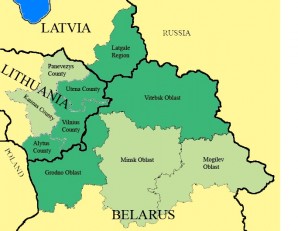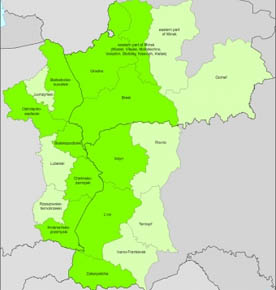Belarusian Domestic Politics in 2013: Cautious Authorities and Divided Opposition

Belarus did not have a major political campaign – an election or referendum – in 2013. Therefore, the political actors focused on preparations for the upcoming elections in 2014 and 2015. The authorities introduced a number of amendments to the Election Code and the opposition dealt with the issues of electing a single candidate and developing a winning strategy.
Also, Belarusian domestic politics last year became remarkable for the political implications of the state modernization program, cautious attempts to reform the public administration system and societal struggle against unpopular government initiatives.
The Politics of Modernization
In 2013, Belarus lived under the slogan of modernization. The word came to every house and almost every state-run enterprise through prolific media propaganda and immense government funding. During his annual address to the nation, President Lukashenka explained what stood behind the modernization rhetoric: after Russia’s WTO accession Belarusian producers faced harsher competition on the domestic and international markets. Modernization should, therefore, improve their competitiveness.
Lukashenka also spelt out the political modus operandi of the proclaimed modernization: he would personally preside over the process and hold all controlling strings in his hands. He even hinted that the modernization would target the overblown social state by gradually departing from state paternalism.
Further developments of the year demonstrated that much of the modernization effort turned into real institutional waste, which, among other things, raised questions about the political prospects of the campaign. Especially, in the face of the 2015 presidential election.
Reform That Does Not Reform
Another grand project of the Belarusian authorities took place in the realm of public administration. After long internal discussions, on 12 April 2013 the president signed Decree No.168 that aimed to optimise the state apparatus by cutting a quarter of the bureaucrats.
The official justification went that the reductions would allow the government to raise salaries for the remaining officials, thus, motivating them to work more efficiently. Besides, the authorities aimed to stop the drain of civil servants into private sector (in Belarus and Russia) by improving their work conditions.
Importantly, Decree No. 168 was publicised under the name of a public administration reform. However, it failed to go beyond mere reductions and failed to actually reform the existing system of public administration. In particular, it failed to tackle its most fundamental problems: excessive and overlapping functions, non-transparent decision-making and untamable corruption. Also, the decree ignored another emerging weakness of the Belarusian “power vertical” – slow generation change and growing gerontocracy.
At the end of the year the problems of ineffective public administration and officials drain became so obvious that Alexander Lukashenka even had to resort to quite extraordinary measures in an attempt to breathe in new life into his governance model.
Strange Government Initiatives and Societal Resistance
The worsening state of the economy in 2013 pushed the authorities to design new tools to top up the budget. At times, they exhibited uncanny creativity.
One idea came from Lukashenka himself. He suggested introducing a new tax – an exit fee. According the idea, those Belarusians who wanted to go abroad and do the shopping there had to pay a $100 fee when crossing the border, because “you can buy stuff in Belarus”.
Another striking idea originated in the ministries of finance and labour and social protection – a tax on the unemployed. The intention was to collect about $280 from each Belarusian citizen employed in the shadow economy or working abroad.
The media and civil society quickly demonstrated massive disapproval of the two initiatives. For instance, dissatisfied citizens launched an Internet petition against the exit fee that received almost 27,000 signatures.
Like the Stop Gasoline campaign in 2011, these became the brightest examples of civic action in the Belarusian authoritarian realities in 2013. As a result, the government had to back away from their plans. Lukashenka even publicly repudiated the idea of an exit fee and mocked the government’s activities to put it into practice.
Yet, another unpopular innovation – an automobile tax that makes all car-owners pay $15-100 a year – was passed by the parliament at the end of December 2013. A series of protests followed but failed to grow into something big. With all probability, President Lukashenka will sign it into a law already in 2014.
Eternally Internally Divided Opposition
The Belarusian opposition spent another year in intensive discussions about ways to unite and to find more popular support. The year of 2013 saw the formation of two opposition coalitions – the People’s Referendum and the For Free and Fair Elections for a Better Life “Talaka”.
Unlike in previous years, the two opposition blocks united on the grounds of different strategies on how to change the incumbent regime rather than on ideological affinity. While the People’s Referendum declared that it would focus on the bread and butter issues to raise its electoral ratings, “Talaka” decided that the only way to transforming the political system was through free and fair elections.
In 2013, the opposition again devoted much of their time to debating ways to unite and elect a single presidential candidate for the 2015 elections. The differences of approaches also went along the dividing lines of the two alliances. The People’s Referendum prefers to hold a congress to elect a single candidate and Talaka argues in favour of primaries.
Remarkably, even on this background opposition leaders in general remained more engaged in the international arena rather than at tome. And their political communication with the domestic electorate looked unsatisfactory.
Authorities Prepare for Future Elections
And the authorities used the last year, which had no electoral campaign, to prepare for future battles – in particular, the 2014 local elections and the 2015 presidential race. Based on the lessons of the 2012 parliamentary elections, they introduced new amendments to the Election Code.
The amendments prohibit campaigning for a boycott, establish a new level of election committees and change the way candidates can fund their campaigns. Another novelty specifically affects parliamentary elections: they will now run according to the first-past-the-post model when a simple majority wins the election.
The opposition and independent observers quickly concluded that the amendments would make it even easier for the authorities to falsify the upcoming elections.







